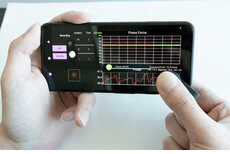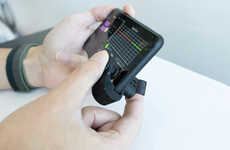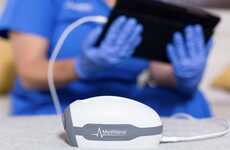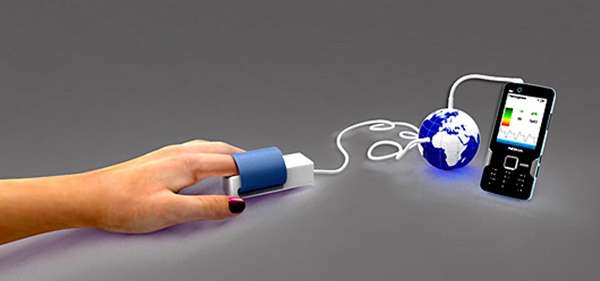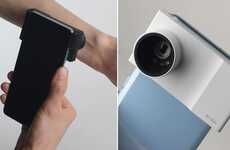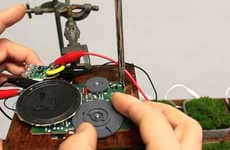
The Hemoglobe Tests for Anemia Using Wavelengths of Light
Michael Hines — September 4, 2012 — Tech
References: releases.jhu.edu & springwise
Researchers at John Hopkins University in Maryland have developed the HemoGlobe, a small smartphone attachment that can test for anemia. The sensor uses small wavelengths of light, not needles, to detect the level of hemoglobin in a person's blood. The results of the test are sent to a central database for further analysis.
The researchers at Johns Hopkins University estimate that the HemoGlobe could be manufactured for about $10 to $20 a piece. If mass produced, the HemoGlobe could be a big help to health workers in third world countries. A health worker who could use their phone to test for anemia could cover more ground than one who has to continually search for clean needles. The HemoGlobe has a shot at going into production as the team that developed it has won a $250,000 grant from Saving Lives at Birth: A Grand Challenge for Development competition.
The researchers at Johns Hopkins University estimate that the HemoGlobe could be manufactured for about $10 to $20 a piece. If mass produced, the HemoGlobe could be a big help to health workers in third world countries. A health worker who could use their phone to test for anemia could cover more ground than one who has to continually search for clean needles. The HemoGlobe has a shot at going into production as the team that developed it has won a $250,000 grant from Saving Lives at Birth: A Grand Challenge for Development competition.
Trend Themes
1. Anemia Testing with Smartphone - The HemoGlobe attachment allows for quick and non-invasive blood tests for anemia using a smartphone, providing convenience and accessibility.
2. Low-cost Medical Devices - The HemoGlobe's estimated manufacturing cost of $10 to $20 per unit highlights the potential for affordable and scalable medical devices.
3. Digital Health Solutions - The HemoGlobe's ability to relay test results to a central database demonstrates the integration of digital technology in healthcare.
Industry Implications
1. Healthcare - The HemoGlobe presents an opportunity for healthcare professionals to improve anemia diagnosis and treatment through portable and cost-effective solutions.
2. Mobile Technology - The development of smartphone attachments like the HemoGlobe opens up possibilities for mobile health applications and advancements in diagnostics.
3. Medical Device Manufacturing - The HemoGlobe's low manufacturing cost and potential for mass production create opportunities in the medical device manufacturing industry to cater to global healthcare needs.
2.6
Score
Popularity
Activity
Freshness

